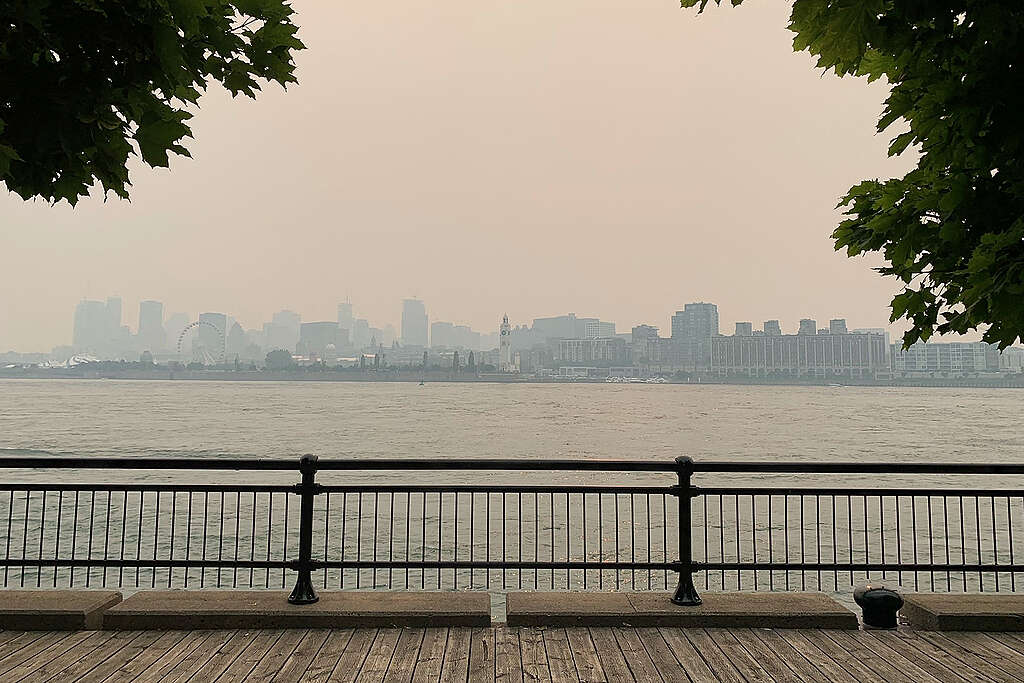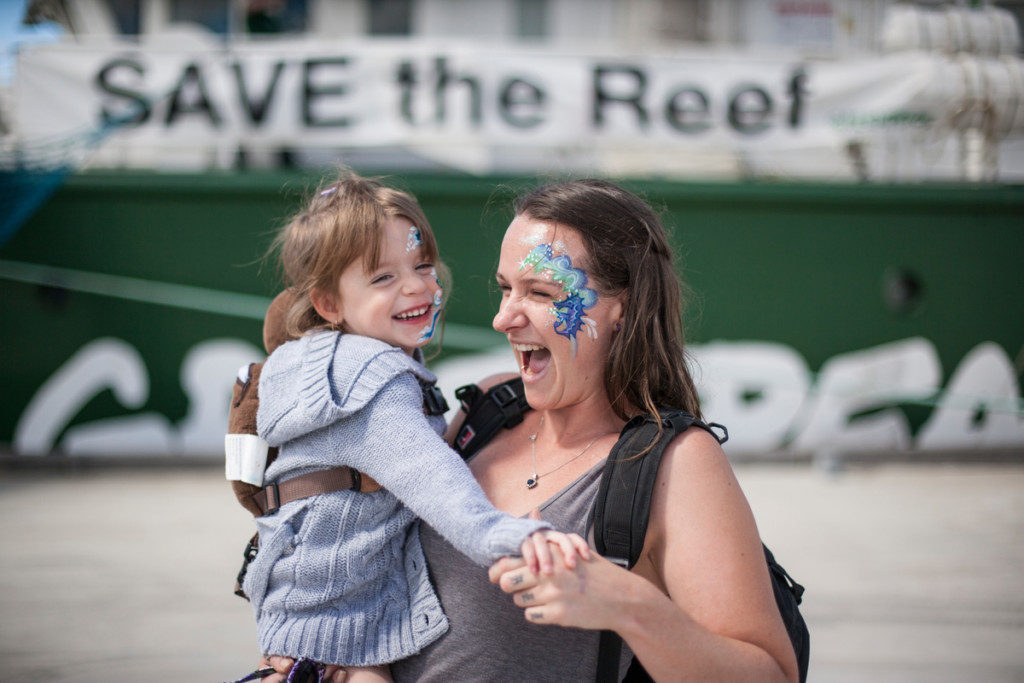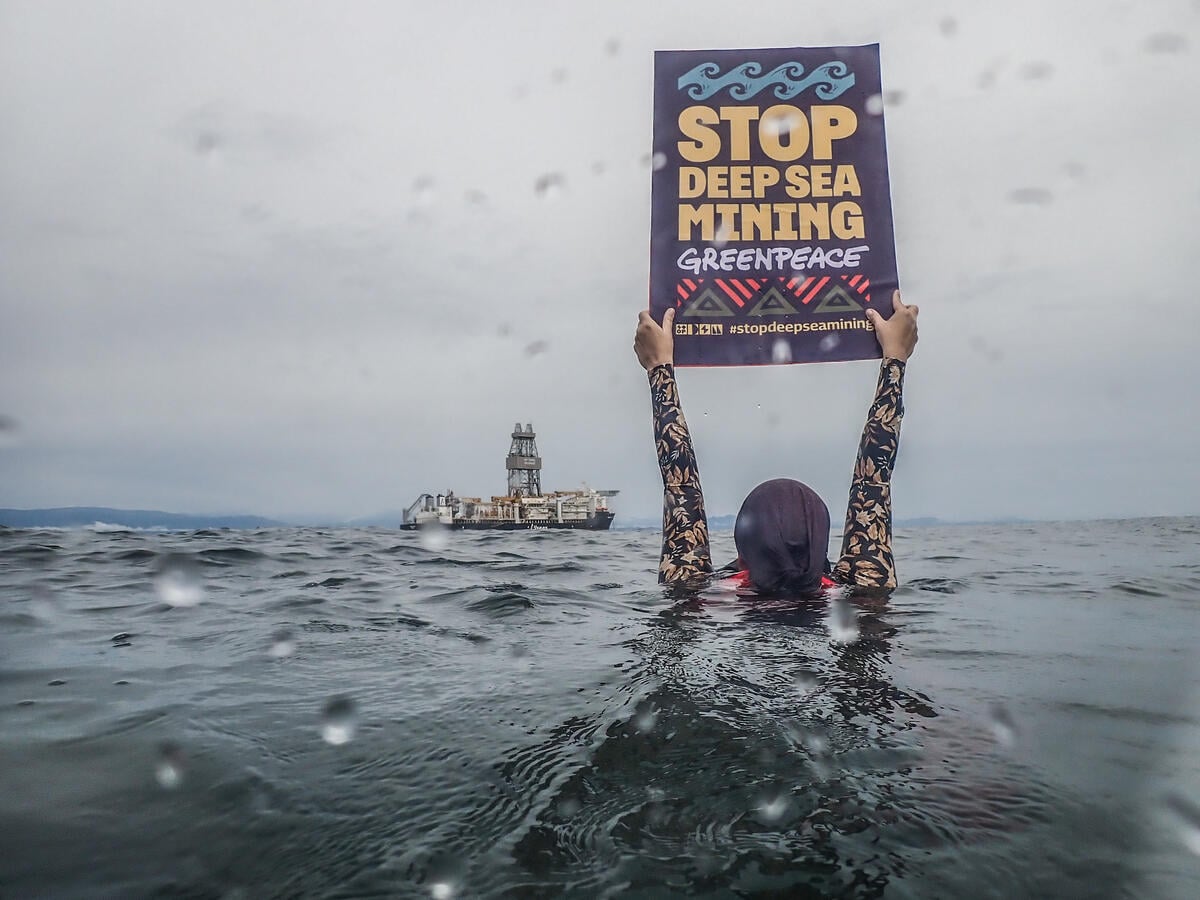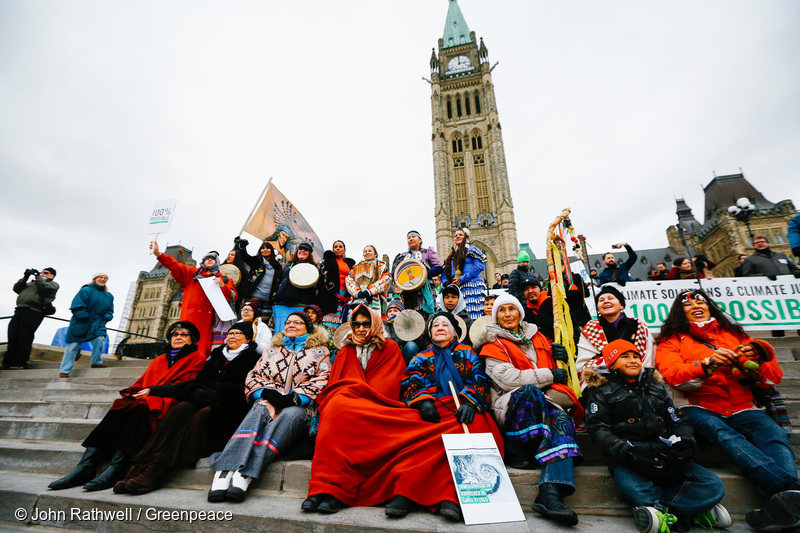
The original version of this text was published in La Presse.
Looking outside my window over the weekend, I could see that orange light in my backyard — and I perceived a tangible smell. I was reminded of the campfires I have with friends on lovely camping weekends. But now the smell of campfire is creating a sinking feeling in the pit of my stomach. It’s the smell of my country burning. Again today, Quebec is burning from the Côte-Nord to the Mauricie, via Abitibi and the Saguenay. The flames ravaged nature and communities in Alberta all through the spring. They are consuming hectares of woodland, sparing nothing in their path. Not the wildlife I love to watch when I go camping, nor the communities that have to evacuate their homes, leaving everything behind, and whose hearts are heavy and backs are bent with uncertainty for the days to come. For many of us, the climate crisis is knocking at our door. It’s frightening, but it’s our reality.
While I can live out my eco-anxiety in the comfort of my apartment, closing the windows and comparing the prices of air purifiers online to the background of classical “end-of-the-world chill” music, I think of all those people for whom the solution cannot be summed up by simply closing the windows. I’m thinking about climate change, the lack of action by those in power. Of what we can do collectively to transform our eco-anxiety into action that will have an impact.
“Uncooperative weather”, says an article subtitle. Can we also address the elephant in the room? This smoke is a mirror from which we can’t look away, forcing us to look reality in the face: “Uncooperative human”, would have been an equally legitimate subtitle. And by human, I’m specifically referring to the people responsible for this country’s major political, economic and social institutions.
I’m thinking of Justin Trudeau and the federal government, who continue to heavily support fossil fuels, the main driver of climate change according to scientists and other experts.
The reality is that we, as citizens, can do something about it.
I’m also thinking of Dave McKay, CEO of RBC, the bank that financed the most fossil fuels worldwide in 2022.
The equation at the heart of the climate crisis is the following: fossil fuels = climate change and failure to respect the rights of Indigenous peoples = increased and worsening extreme weather events (such as forest fires and floods).
Tucked away in my overheated apartment, I’m also concerned about the health impacts of this crisis. While forest fires and smoke pose a health risk to the population as a whole, they have a disproportionate impact on Indigenous and rural communities, on black and racialized communities, on the LGBTQIA2S+ community, and marginalized people.
Taking action feels good. And sometimes, it even changes things. Last year, a festive event in front of Scotiabank’s Annual General Meeting contributed to ending the bank’s partnership with Canada’s most powerful fossil fuel lobby. In December, the mobilization of people from all over the world for COP15 in Montreal led to the Kunming-Montreal Accord, setting the table for real protection of nature and recognition of the role of Indigenous and traditional territories in achieving this goal.
The light, the real light, will come because we have created it and demanded it collectively. Together, we can demand that those in positions of power, such as governments and banks, stop financing fossil fuels and invest more widely in sustainable, community-driven energy solutions.
The solutions for combating climate change and implementing appropriate mitigation and adaptation measures for communities facing these fires do exist. Whether in nature, through Indigenous knowledge and modes of governance, or in the knowledge generated by civil and scientific society, the solutions are there and just waiting to be financed (or de-financed in the case of fossil fuels) — and implemented. It’s high time the federal and provincial governments look through the smoke and into the mirror: to see the reality of what needs to be done reflected back to them. To take immediate and direct action to protect biodiversity, climate and communities.

Greenpeace is a people-powered, science-based, and action-oriented organization that does not take money from corporations or governments. This means we rely on individual donations from generous people like you to carry out our work.
Take action



Discussion
RBC no more fossil fuel. Time to think !
Stop funding fossil fuels !